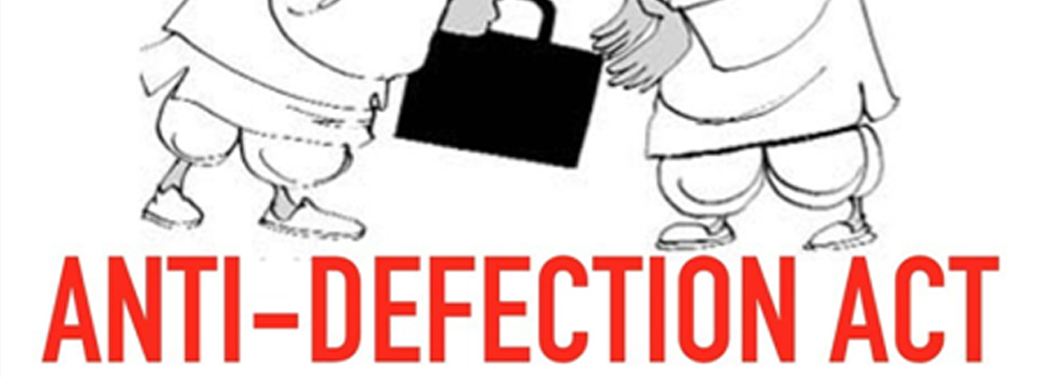SUPREME COURT INVOKES SPECIAL POWERS IN DEFECTION CASE
19, Mar 2020

Prelims level : Polity and Governance - Judiciary
Mains level : GS-II Structure, organization and functioning of the Executive and the Judiciary.
Why in News?
- Recently, the Supreme Court invoked its special powers under Article 142 of the Constitution to remove a minister belonging to Manipur Cabinet.
Highlights of the Judgement:
- The Supreme Court removed a minister from the state cabinet and restrained him “from entering the Legislative Assembly till further orders”.
- It has to be notes that a disqualification petition against the minister was pending before the Speaker since 2017 but the Speaker failed to take the decision within a reasonable time period.
- The Speaker even failed to take any decision within the stipulated time period of 4 weeks as provided by the Supreme Court in the earlier order passed in the month of January 2020.
Invoking Art 142:
- Article 212of the Constitution bars courts from inquiring into proceedings of the Legislature. In this case, however, prompted by the fact that the Speaker’s conduct has been called into question on several occasions, the Court said it was “constrained” to invoke the court’s extraordinary powers under Article 142 of the Constitution.
- Article 142: It provides discretionary power to the Supreme Court as it states that the Supreme Court in the exercise of its jurisdiction may pass such decree or make such order as is necessary for doing complete justice in any cause or matter pending before it.
Previous Court Judgements regarding Anti-defection Laws:
- The court in general said that “the Speaker, in acting as a Tribunal under the Tenth Schedule, is bound to decide disqualification petitions within a reasonable period”, which “will depend on the facts of each case.”
- The Supreme Court also held that disqualification petitions under the tenth schedule should be adjudicated by a mechanism outside Parliament or Legislative Assemblies.
- The Court has suggested a permanent tribunal headed by a retired Supreme Court judge or a former High Court Chief Justice as a new mechanism. However, this would require an amendment to the Constitution.
- Currently, disqualification of members of a House/Assembly is referred to the Speaker of the House/Assembly.
- Rationale behind Court’s suggestion was to ensure that such disputes are decided both swiftly and impartially, thus giving real teeth to the provisions contained in the Tenth Schedule.
About Tenth Schedule:
- The Anti-Defection Law was passed in 1985 through the 52nd amendment to the Constitution. It added the Tenth Schedule to the Indian Constitution. The main intent of the law was to combat political defections.
- According to it, a member of a House belonging to any political party becomes disqualified for being a member of the House, if
- 1.he voluntarily gives up his membership of such political party; or
- 2.he votes or abstains from voting in such House contrary to any direction issued by his political party without obtaining prior permission of such party and such act has not been condoned by the party within 15 days.
Powers of Speaker with regard to Anti-Defection Law:
- Any question regarding disqualification arising out of defection is to be decided by the presiding officer of the House.
- After the Kihoto Hollohan case (1993), the Supreme Court declared that the decision of the presiding officer is not final and can be questioned in any court. It is subject to judicial review on the grounds of malafide, perversity, etc.






